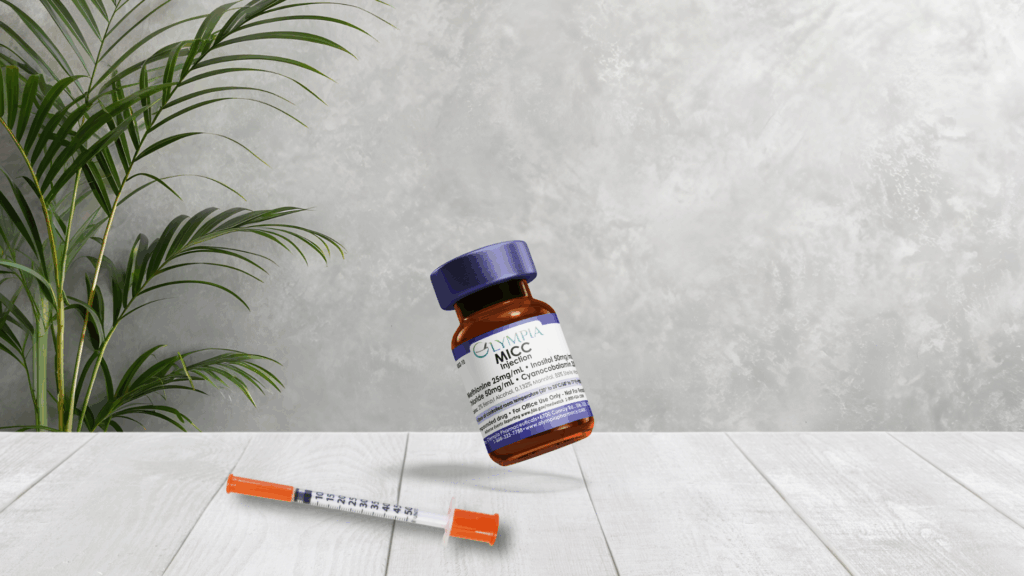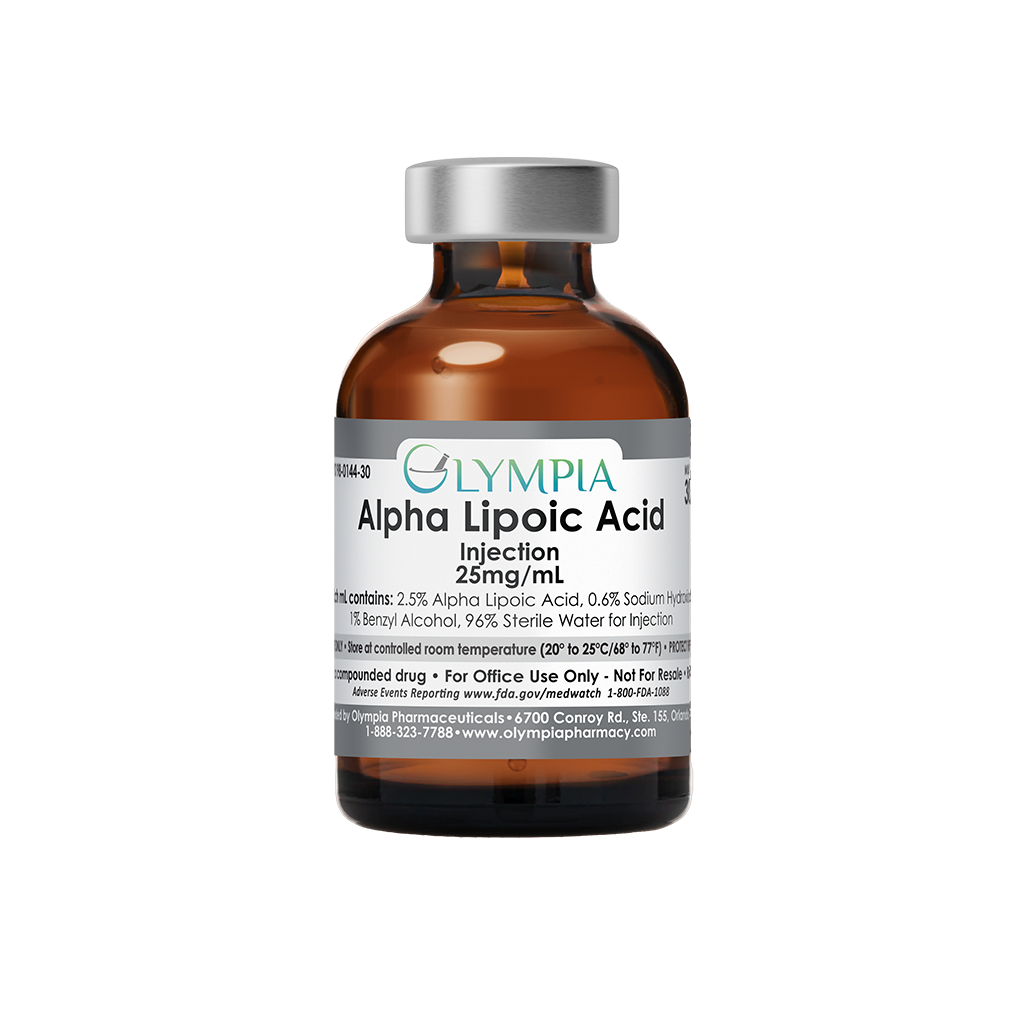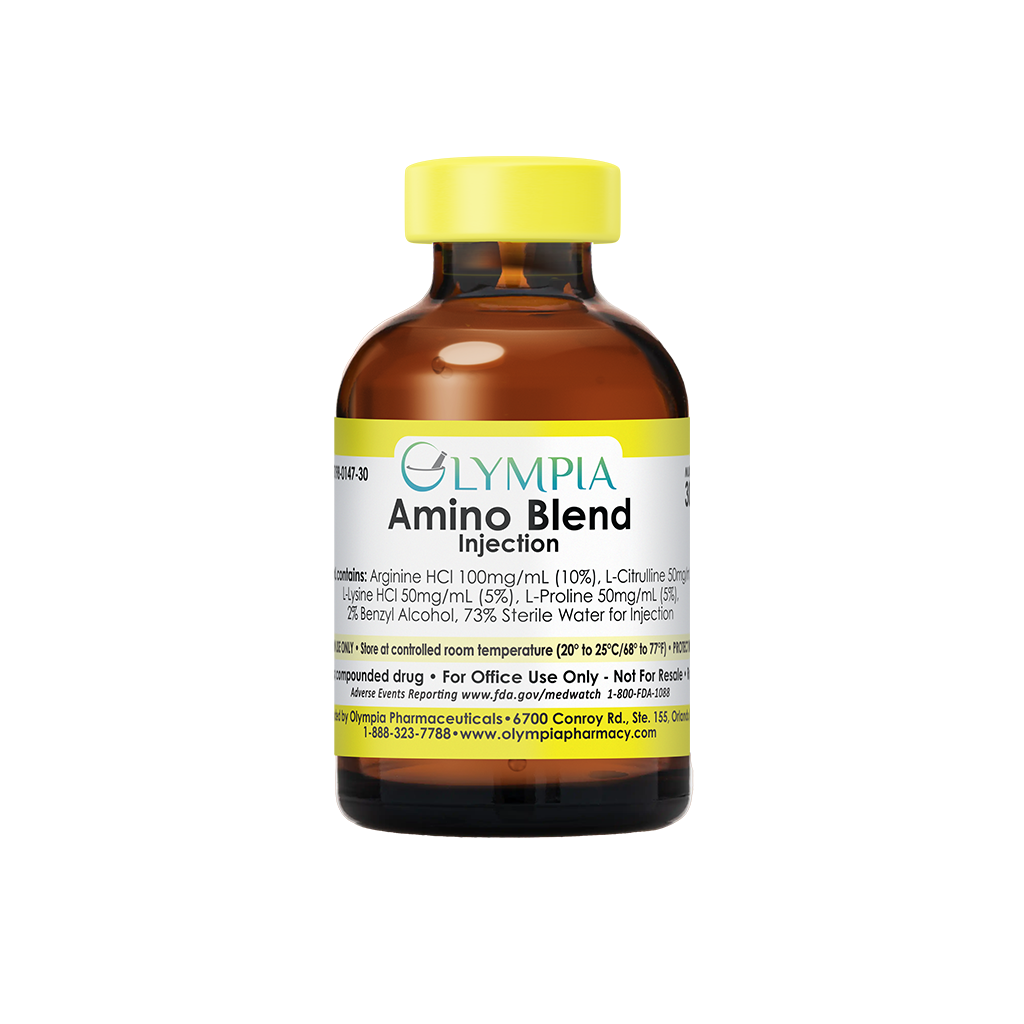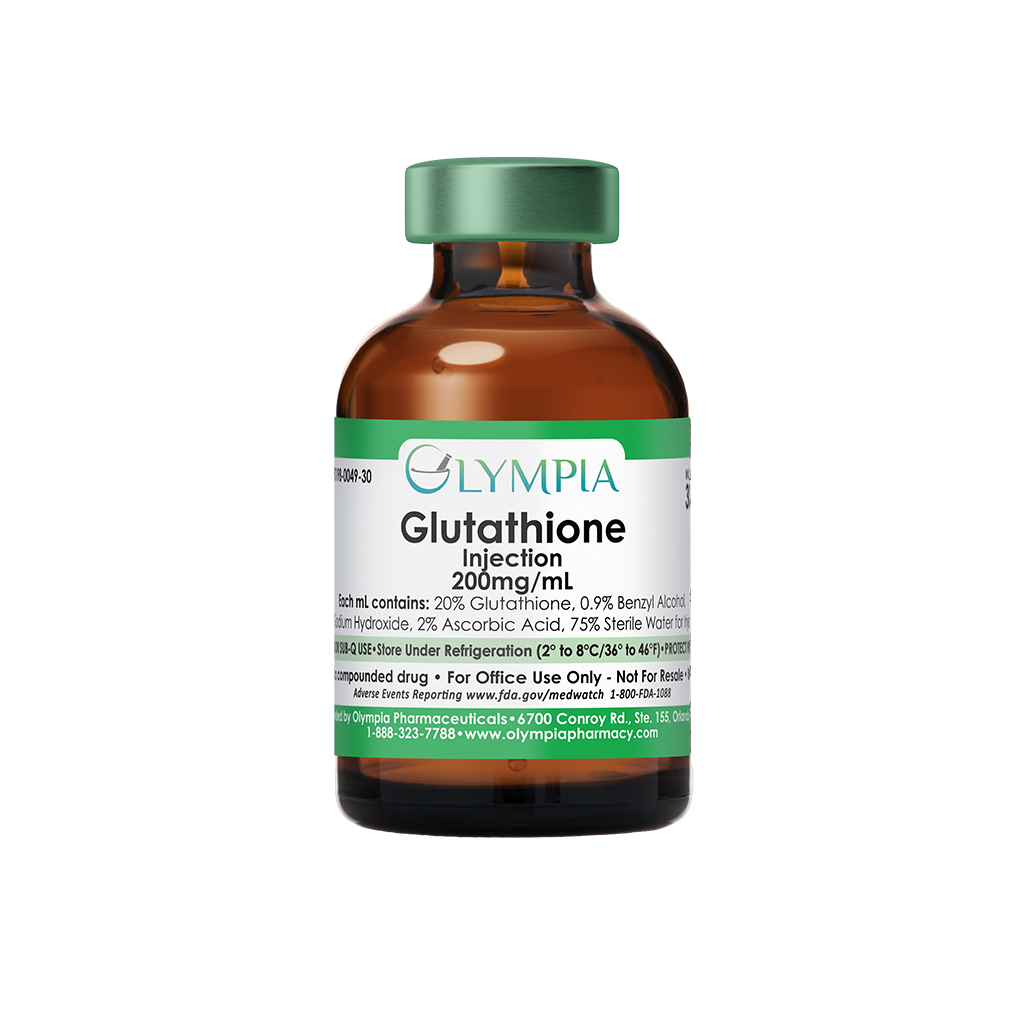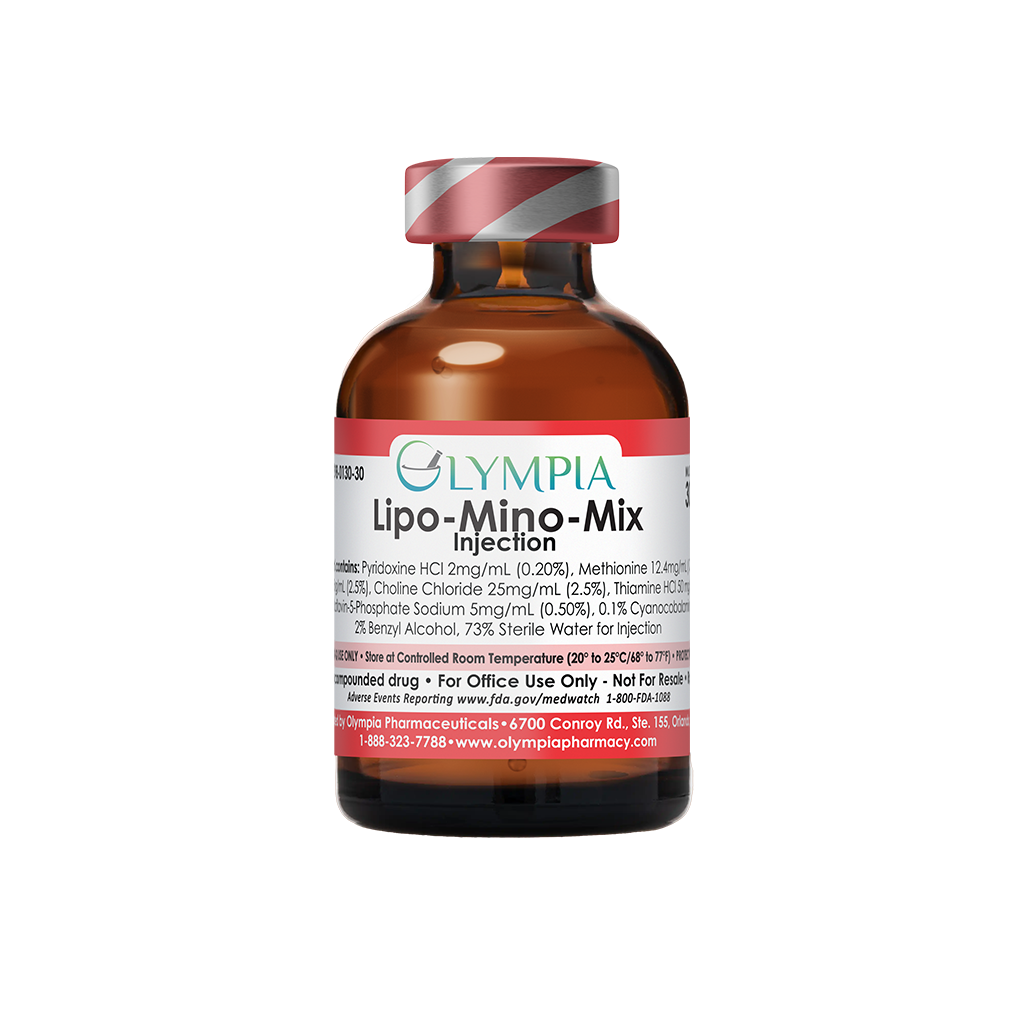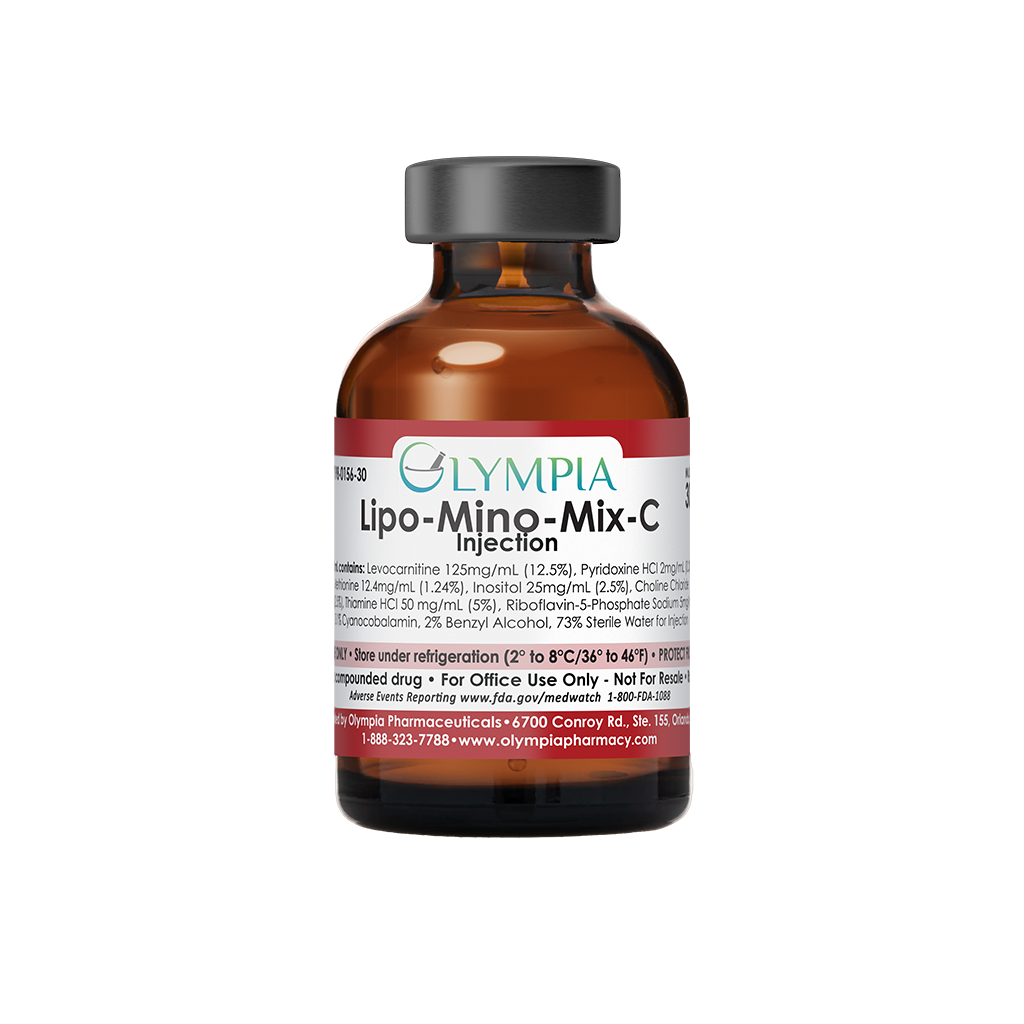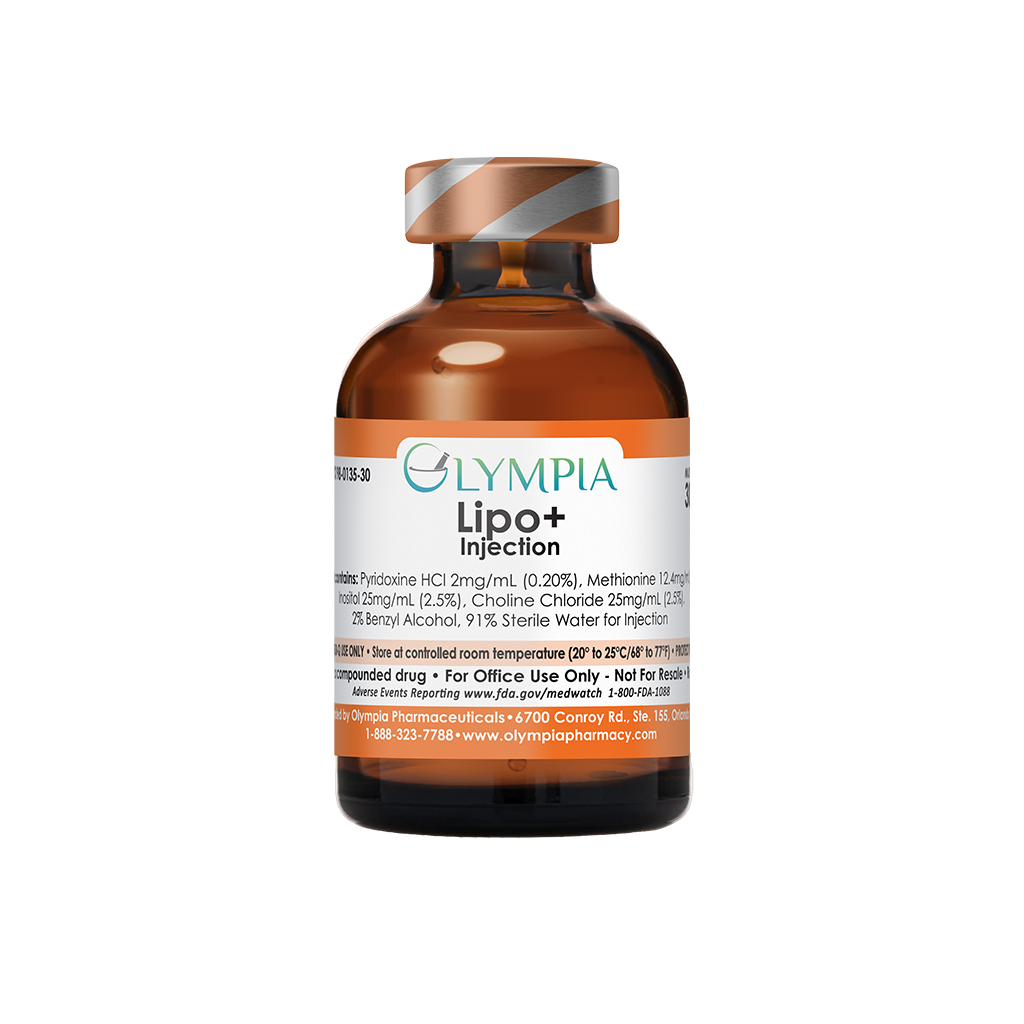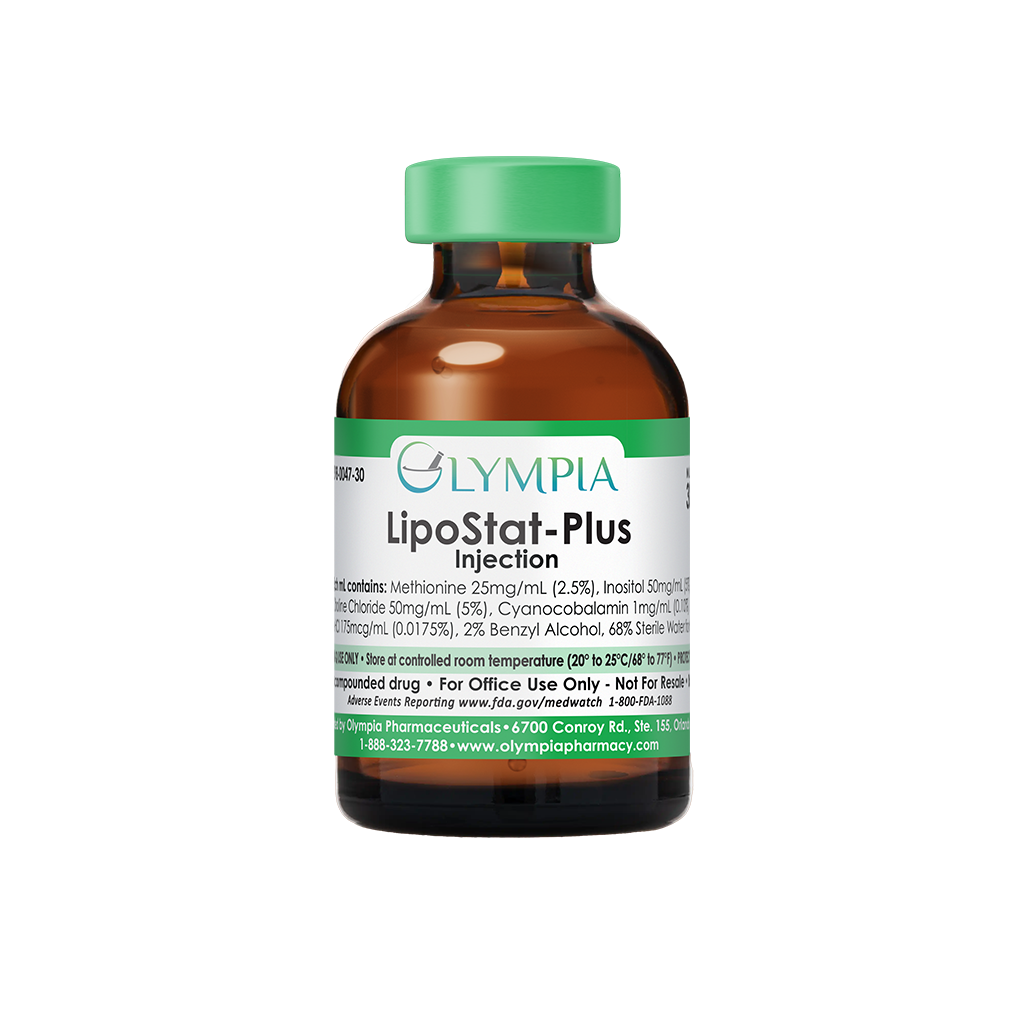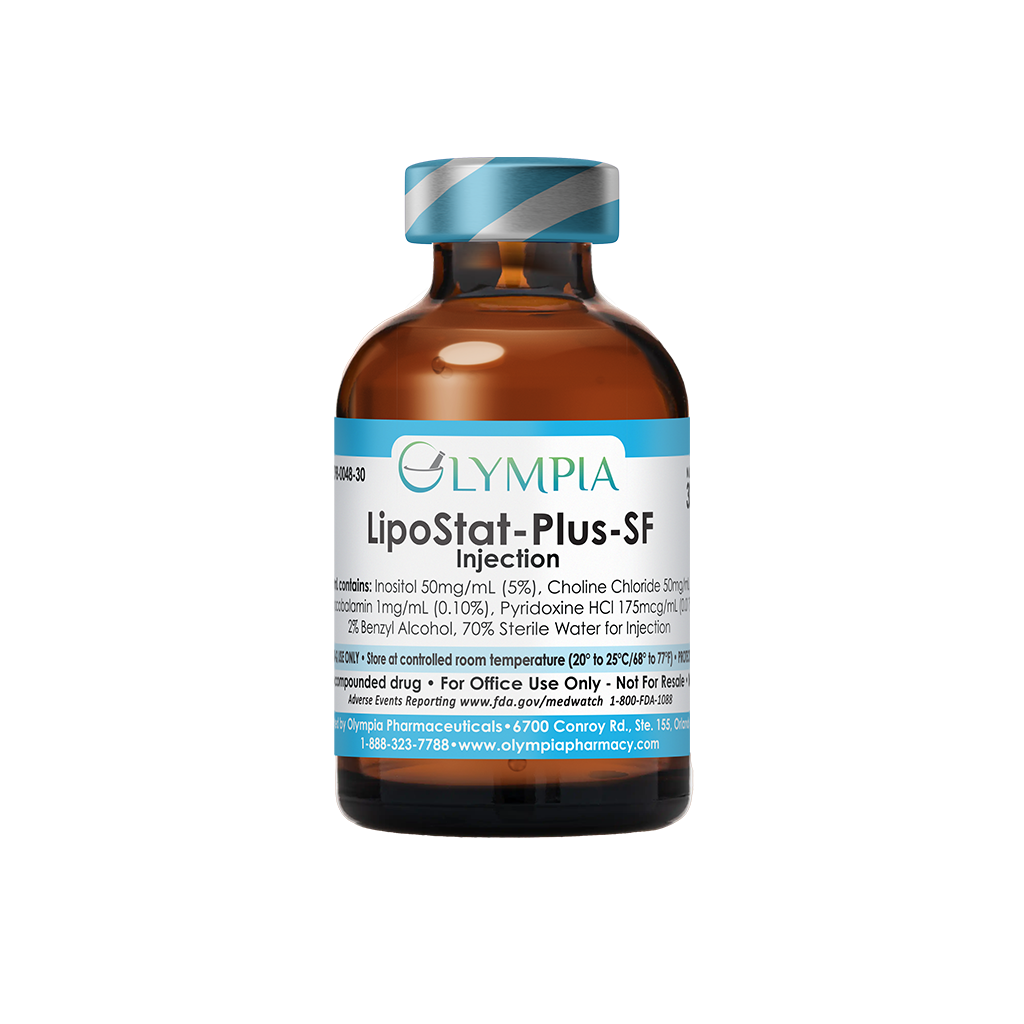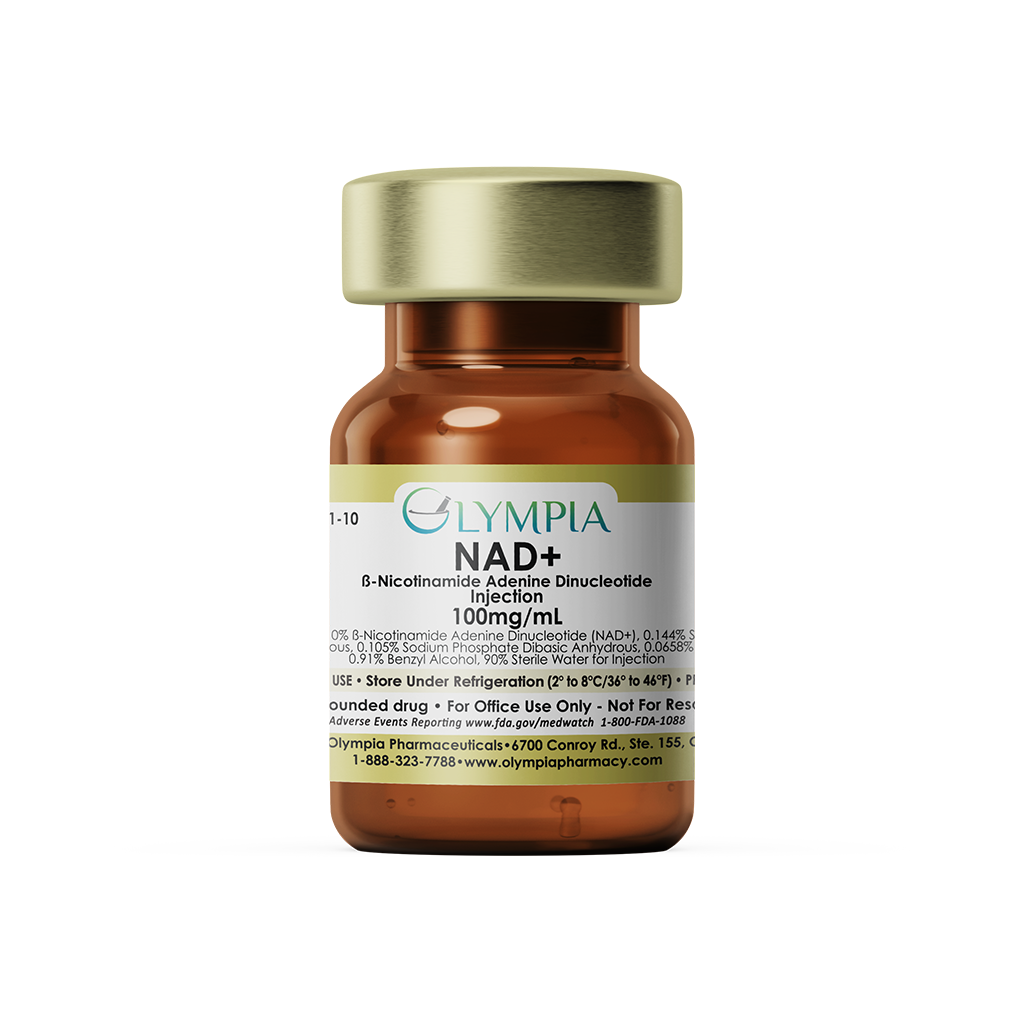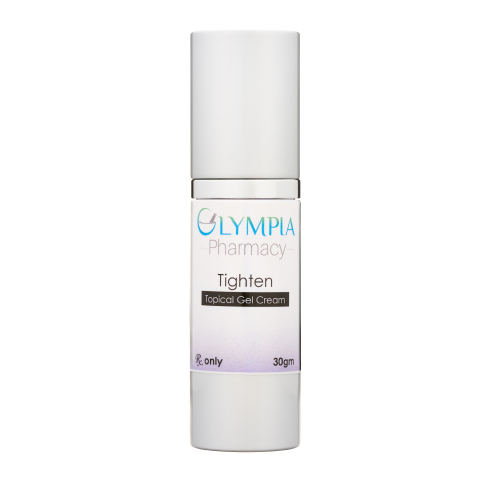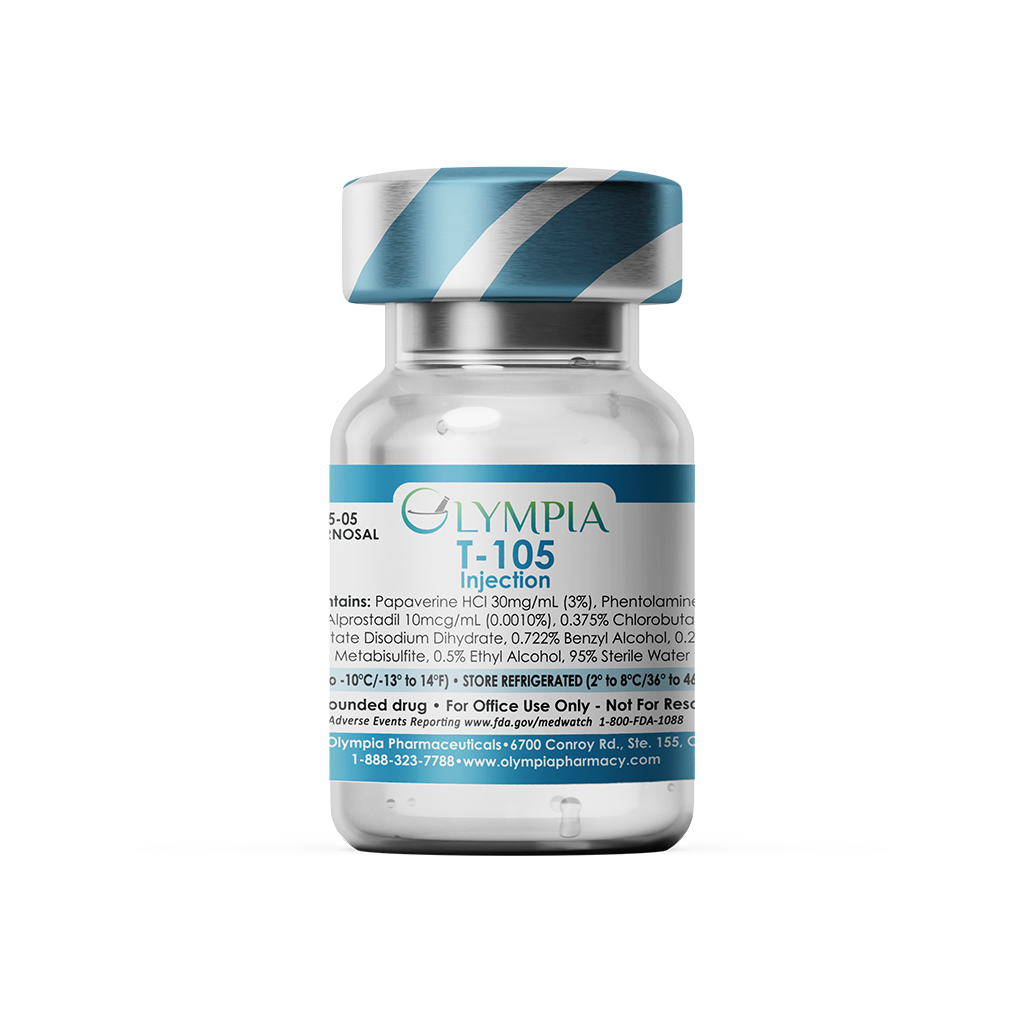Enclomiphene is gaining attention as a promising option for men looking to address low testosterone without the tradeoffs often associated with traditional testosterone replacement therapy (TRT). With its unique mechanism of action, this compound offers a new approach to hormone support, particularly for men who want to maintain reproductive health.
In this blog, we’ll explore how enclomiphene works, how it compares to other solutions and what the latest research says about its benefits, side effects and long-term considerations.
What Is Enclomiphene?
Enclomiphene is an oral medication that may support natural testosterone production in men. It belongs to a class of drugs called selective estrogen receptor modulators (SERMs) and may be prescribed to men with secondary hypogonadism, which is a condition where the brain fails to signal the testes to produce adequate testosterone.
Rather than introducing external testosterone into the body, enclomiphene works by activating the body’s own hormone pathways, helping to restore testosterone levels through internal signaling rather than introducing external testosterone into the body[1].
[button url=”https://www.olympiapharmacy.com/product/enclomiphene/”]Learn More[/button]
How Enclomiphene Works in Men
Enclomiphene may increase testosterone by acting on the hypothalamic-pituitary-gonadal (HPG) axis, the body’s natural hormone-regulating system[1]. Under normal conditions, estrogen signals the hypothalamus to reduce the release of gonadotropin-releasing hormone (GnRH) through a process called negative feedback. Enclomiphene blocks this signal by selectively binding to estrogen receptors in the hypothalamus, which can lead to an increase in GnRH secretion. [1].
GnRH then triggers the anterior pituitary gland to release luteinizing hormone (LH) and follicle-stimulating hormone (FSH)[1]. LH prompts the testes to produce testosterone[2], while FSH supports sperm production[3]. This leads to a natural increase in testosterone levels, as well as maintenance of testicular function and sperm production.
Enclomiphene vs. Clomid
Clomiphene citrate (often referred to by its brand name, Clomid) is a medication made up of two chemical forms, or isomers: about 62% enclomiphene (trans-isomer) and 38% zuclomiphene (cis-isomer)[4]. Enclomiphene is the active component that stimulates testosterone production. In contrast, zuclomiphene has estrogen-like effects and a longer half-life, which may contribute to unwanted side effects over time[4].
Enclomiphene citrate is a purified version that only contains the active isomer (enclomiphene). By removing the estrogen-like component, it may help support testosterone production without the unwanted hormonal activity linked to zuclomiphene[4].
Research suggests that enclomiphene may increase testosterone levels comparably to clomiphene[5] but with fewer reported side effects. One study reported adverse events in 18.18% of men taking clomiphene, compared to just 3.45% of those on enclomiphene [5]. Men on enclomiphene reported experiencing lower rates of mood changes, low libido and fatigue. Additionally, estradiol levels rose substantially on clomiphene but remained stable with enclomiphene[6]. Estradiol is the most potent form of estrogen in the body, and while essential in small amounts, elevated levels in men may contribute to issues like erectile difficulty or disrupted sexual function[7][8].
Additionally, enclomiphene has been associated with better pregnancy outcomes compared to clomiphene in men seeking fertility support[6], suggesting it may be a more favorable option for those balancing hormone optimization with reproductive goals.
Enclomiphene vs. TRT (Testosterone Replacement Therapy)
Traditional testosterone replacement (TRT) therapies like injections, gels, cream, tablets and pellets work by delivering external testosterone to the body. While this may raise testosterone levels and improve symptoms like low libido, mood changes and muscle loss[9], it may come at the cost of fertility. That’s because TRT suppresses the HPG axis, which may reduce the body’s own production of key reproductive hormones (LH and FSH) and lead to lower sperm counts or even temporary infertility[10]. In fact, TRT has even been studied as a potential form of male contraception due to this effect[10].
Enclomiphene, on the other hand, may boost natural testosterone production by stimulating LH and FSH release. In contrast, men using topical testosterone gel saw decreases in LH and FSH and a reduction in sperm production[12].
Benefits of Enclomiphene for Men
Fertility-Friendly Option
Since research suggests that enclomiphene raises testosterone levels without negatively affecting sperm production, it may be a promising option for men who want to optimize their hormones while preserving their fertility. This makes it appealing for younger men or those hoping to start or grow their families in the future.
Improved Energy and Mood
Many men report noticeable improvements in energy, focus and mood once their testosterone levels return to a healthier range[13][14]. While individual responses can vary, restoring hormone balance often has a positive impact on daily motivation, cognitive sharpness and emotional well-being.
[button url=”https://www.olympiapharmacy.com/product/enclomiphene/”]Start Your Journey Today[/button]
Is Enclomiphene FDA-Approved?
Enclomiphene is not approved by the U.S. Food and Drug Administration (FDA). It is a prescription-only medication and should be used under the guidance of a licensed healthcare provider.
Although not FDA-approved, enclomiphene has been evaluated in several studies for men with secondary hypogonadism. Research to date suggests it is generally well tolerated, with no serious adverse events reported during short- to mid-term use.
Common Side Effects
Research suggests that enclomiphene is generally well tolerated, with a lower rate of side effects compared to clomiphene[15][11]. While serious reactions are rare, some men have reported mild to moderate symptoms, including[15][11]:
- Headache
- Abdominal discomfort
- Mood changes (such as irritability or low mood)
- Fatigue or decreased energy
- Changes in libido
- Mild elevation in estradiol levels
If you experience persistent mood swings, nausea, visual changes or any new symptoms while taking enclomiphene, it’s important to consult your provider.
Long-Term Use Considerations
Early studies suggest that enclomiphene may be a well-tolerated option for short- to mid-term solution for hypogonadism, with no serious adverse events reported[16][15]. However, most trials to date have lasted only a few months, so its long-term effects remain less well understood.
While current evidence is encouraging, more research is needed to evaluate its impact over years of use, including effects on bone health, mood, metabolism and cardiovascular risk. Until those data are available, regular follow-up with lab testing and symptom tracking is important to evaluate response and adjust care as needed.
Who Should Consider Enclomiphene?
Enclomiphene may be a good option for men experiencing secondary hypogonadism. It’s well-suited for those who want to restore natural testosterone levels without compromising fertility. Because enclomiphene may stimulate the body’s hormone production instead of replacing testosterone externally (as traditional TRT does), it may be prescribed for men who:
- Want to maintain or improve sperm production while improving low testosterone
- Want to avoid testosterone gels or injections
- Have symptoms of low testosterone but prefer a treatment option that supports natural hormone regulation
Signs You May Have Low Testosterone
Low testosterone can show up in different ways, and symptoms often vary depending on your age and overall health. Common signs include[17]:
- Reduced sex drive or difficulty with erections
- Fatigue, low motivation or lack of endurance
- Brain fog or trouble concentrating
- Loss of muscle mass or strength
- Increased body fat or breast tissue development
- Shrinking testicles or low sperm count (which may affect fertility)
- Depressed mood or mood swings
If you’re noticing several of these symptoms, it may be worth getting your hormone levels checked. A licensed provider can help determine if enclomiphene is right for your specific needs.
Getting Started with Enclomiphene at Olympia Pharmacy
As interest in enclomiphene grows among men seeking hormone support without compromising fertility, providers need access to reliable formulations that align with patient goals.
Olympia Pharmacy compounds enclomiphene in a high-quality, oral format intended for use under the guidance of licensed healthcare professionals. All formulations follow strict CGMP practices to ensure consistency and performance.
Want to learn more about offering enclomiphene as part of your practice? Connect with our team to explore how Olympia’s premium compounded medications can support your needs.
Resources
1. [Internet]. [cited 2025 Jun 24]. Available from: https://evsexplore.semantics.cancer.gov/evsexplore/concept/ncit/C61745
2. Nedresky D, Singh G. Physiology, Luteinizing Hormone. [Updated 2022 Sep 26]. In: StatPearls [Internet]. Treasure Island (FL): StatPearls Publishing; 2025 Jan-. Available from: https://www.ncbi.nlm.nih.gov/books/NBK539692/
3. Orlowski M, Sarao MS. Physiology, Follicle Stimulating Hormone. [Updated 2023 May 1]. In: StatPearls [Internet]. Treasure Island (FL): StatPearls Publishing; 2025 Jan-. Available from: https://www.ncbi.nlm.nih.gov/books/NBK535442/
4. Gupta, M. C., & Khanna, J. (2018). Clomiphene citrate: the changing landscape. International Journal of Basic & Clinical Pharmacology, 7(8), 1437–1443. https://doi.org/10.18203/2319-2003.ijbcp20183011
5. J Kassab, G Saffati, L Lipshultz, M Khera, (094) Safety and Efficacy of Enclomiphene Compared to Clomiphene for Hypogonadal Men, The Journal of Sexual Medicine, Volume 21, Issue Supplement_1, February 2024, qdae001.090, https://doi.org/10.1093/jsxmed/qdae001.090
6. Kassab J, Torres-Anguiano J, Lindsey J, Gondokusumo J, Itani S, Jabin M, et al. MP43-13 ENCLOMIPHENE IS ASSOCIATED WITH HIGHER PREGNANCY RATES WHEN COMPARED TO CLOMIPHENE IN INFERTILE MEN WITH LOW TESTOSTERONE. Journal of Urology [Internet]. 2023 Apr 1 [cited 2025 Jun 25];209(Supplement 4):e606. Available from: https://doi.org/10.1097/JU.0000000000003289.13
7. Chen T, Wu F, Wang X, Ma G, Xuan X, Tang R, Ding S, Lu J. Different levels of estradiol are correlated with sexual dysfunction in adult men. Sci Rep. 2020 Jul 29;10(1):12660. doi: 10.1038/s41598-020-69712-6. PMID: 32728148; PMCID: PMC7391660.
8. Schulster M, Bernie AM, Ramasamy R. The role of estradiol in male reproductive function. Asian J Androl. 2016 May-Jun;18(3):435-40. doi: 10.4103/1008-682X.173932. PMID: 26908066; PMCID: PMC4854098.
9. Barbonetti A, D’Andrea S, Francavilla S. Testosterone replacement therapy. Andrology. 2020; 8: 1551–1566. https://doi.org/10.1111/andr.12774
10. Fink J, Ide H, Horie S. Management of Male Fertility in Hypogonadal Patients on Testosterone Replacement Therapy. Medicina (Kaunas). 2024 Feb 5;60(2):275. doi: 10.3390/medicina60020275. PMID: 38399562; PMCID: PMC10890669.
11. Rodriguez KM, Pastuszak AW, Lipshultz LI. Enclomiphene citrate for the treatment of secondary male hypogonadism. Expert Opin Pharmacother. 2016 Aug;17(11):1561-7. doi: 10.1080/14656566.2016.1204294. Epub 2016 Jul 4. PMID: 27337642; PMCID: PMC5009465.
12. Kim, E.D., McCullough, A. and Kaminetsky, J. (2016), Oral enclomiphene citrate raises testosterone and preserves sperm counts in obese hypogonadal men, unlike topical testosterone: restoration instead of replacement. BJU Int, 117: 677-685. https://doi.org/10.1111/bju.13337
13. Zitzmann M. Testosterone, mood, behaviour and quality of life. Andrology. 2020; 8: 1598–1605. https://doi.org/10.1111/andr.12867
14. Zitzmann, M. (2006). Testosterone and the brain. The Aging Male, 9(4), 195–199. https://doi.org/10.1080/13685530601040679
15. Saffati G, Kassab J, Orozco Rendon D, Hinojosa-Gonzalez DE, Kronstedt S, Lipshultz LI, Khera M. Safety and efficacy of enclomiphene and clomiphene for hypogonadal men. Transl Androl Urol. 2024 Sep 30;13(9):1984-1990. doi: 10.21037/tau-24-238. Epub 2024 Sep 24. PMID: 39434750; PMCID: PMC11491226.
16. Jed Kaminetsky, Michael Werner, Greg Fontenot, Ronald D. Wiehle, Oral Enclomiphene Citrate Stimulates the Endogenous Production of Testosterone and Sperm Counts in Men with Low Testosterone: Comparison with Testosterone Gel, The Journal of Sexual Medicine, Volume 10, Issue 6, June 2013, Pages 1628–1635, https://doi.org/10.1111/jsm.12116
17. Low testosterone (low T): Causes, symptoms & treatment [Internet]. 2025 [cited 2025 Jun 24]. Available from: https://my.clevelandclinic.org/health/diseases/15603-low-testosterone-male-hypogonadism



